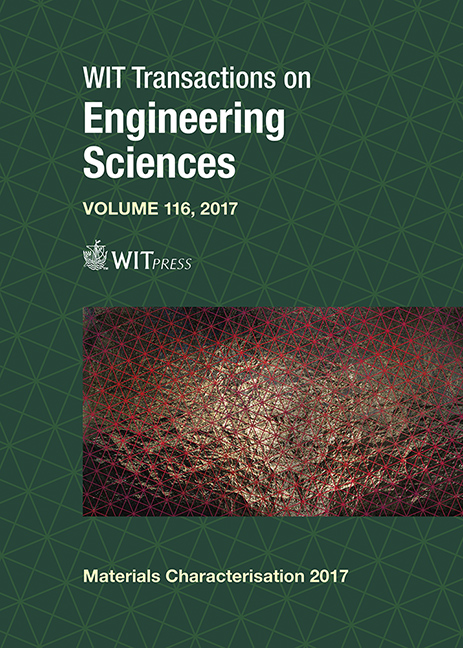NANOSCALE AND MICROSCALE SIMULATIONS OF N-N JUNCTION HETEROSTRUCTURES OF 3C-4H SILICON CARBIDE
Price
Free (open access)
Transaction
Volume
116
Pages
14
Page Range
235 - 248
Published
2017
Size
789 kb
Paper DOI
10.2495/MC170241
Copyright
WIT Press
Author(s)
HAROON RASHID, ANTS KOEL, TOOMAS RANG, RETO GÄHWILER, MARTIN GROSBERG, RAUNO JÕEMAA
Abstract
Heterostructures have become essential constituents of most advanced electronic devices. These structures are well suitable for high frequency and fast switching digital electronic applications. Heterostructures are of great interest because motion of charge carriers can be controlled by modifying energy band profiles of constituent materials. During the last few years, heterostructures based on silicon carbide (SiC) polytypes have come to prominence due to their promising physical and electrical properties. Silicon carbide heterostructures fabricated from their most popular polytypes, 3C-SiC, 4H-SiC and 6H-SiC have high value of breakdown voltages and hole mobility. They are extensively used as power electronic devices, sensors and light emitting diodes. Attractive properties and a wide range of applications of SiC heterostructures are pleading the researchers to work in this field. The intention of presented work is to contribute in this area by simulating novel devices based on SiC heterostructures with better electrical properties. For this purpose, heterostructure diodes based on n-type 4H-SiC and n-type 3C-SiC polytypes are simulated at micro and nanoscales. Microlevel simulations have been carried out with the SILVACO TCAD software tool, whereas nanoscale simulations have been done with Quantumwise Atomistix with Virtual Nano Lab (VNL) software toolkit. Different mobility and recombination models appropriate for constituent polytypes have also been implemented during simulations in SILVACO TCAD. Band alignment in structures and IV-curve of microscale simulated device have been deliberated in this paper. Transmission spectrum, projected device density of states (PDDOS) and IV-Curves obtained from nanoscale simulated diodes with titanium, gold and semiconductor itself as an electrode have been investigated and analyzed.
Keywords
heterostructures, silicon carbide, 3C-SiC, 4H-SiC, transmission spectrum, PDDOS





